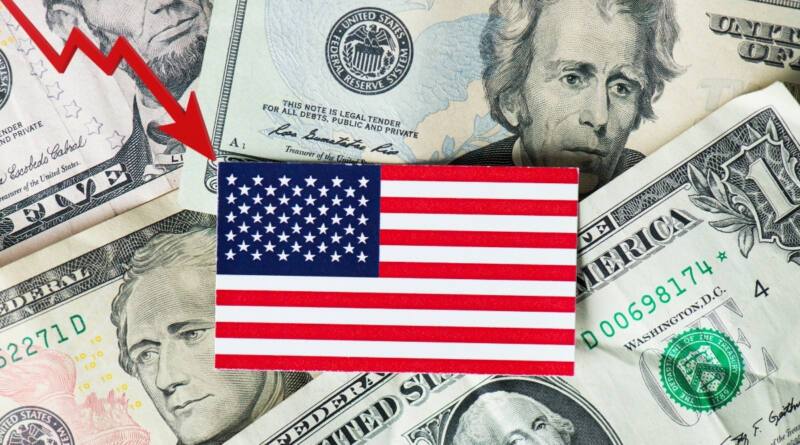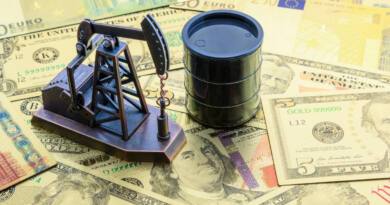Why Is The Great American Economy Down?
In comparison to four years ago, are you in a better place now? Reminding voters of what the spring of 2020 was like—is that really a smart idea?
Because that was a horrible moment. With the number of COVID deaths soaring, it was a terrifying moment. The disturbance of normal social contacts led to a period of seclusion. Perhaps as a result of considerable social unrest, violent crime was on the rise during that period. Significant job losses occurred during that period, with the unemployment rate reaching 14.8% in April of that year. And recall the acute shortage of toilet paper?
Furthermore, the 1979 gas lines were still fresh in people’s memories when Reagan made the statement in 1980, and the economy was doing poorly overall with 7.5 percent unemployment and 12.6 percent inflation. Inflation is currently at about 3%, and unemployment is less than 4% (and likely still down, despite some erratic recent data).
On the other hand, some analysts advise us not to pay much attention to fancy data that suggests America is doing fairly well. People who live in America claim that the economy is still terrible. Furthermore, isn’t the consumer, or the customer in this instance, always right?
To be honest, I don’t think the word “experience” has the meaning that it does. It’s true that the majority of Americans think poorly of the state of the economy. However, people don’t really interact with the economy. Their personal financial situations are what they directly encounter, and the majority of Americans feel generally good about their own financial situation.
Let me first discuss the data collected when evaluating consumer sentiment, whether through opinion polls or regular surveys by Civiqs, the Conference Board, or the University of Michigan Surveys of Consumers. These polls typically ask respondents about their opinions on the economy as a whole, or what they believe is happening to other people rather than their own experiences.
What occurs then if you do inquire about firsthand knowledge?
The findings of Quinnipiac University’s swing-state surveys, which inquire about respondents’ personal financial circumstances as well as the status of the economy as a whole, have really impressed me. Only 35% of Michigan voters in the most recent survey thought the country’s economy was great or good, while 65% thought it was not so good or awful. However, when asked about their personal financial situation, 61% of respondents said they were in excellent or good form, while 38% said they were not so good or awful.
Pennsylvania voters gave nearly identical responses to a survey in January.
It goes beyond Quinnipiac. There is a comparable discrepancy between how people see the economy and what they experience in their personal lives, according to further data. For instance, a September Harris Poll for The Guardian found that, despite the fact that unemployment is actually approaching a 50-year low, a narrow majority of Americans believed that it was. In the same month, however, the Conference Board found that three times as many Americans said that jobs were “hard to get” as said they were “plentiful.”
The University of Michigan asks customers to compare their current and previous five-year financial situations. 52% of respondents thought it was better in January, while 38% thought it was worse.
Therefore, those claiming that the official statistics contradict lived experience are not truly doing their homework. In contrast to what people say about the economy, Americans’ personal experiences appear to be generally good and consistent with macroeconomic indicators, to the extent that we can assess them.
This discrepancy between tales and personal experience could have several causes. Clearly, partisanship plays a significant role. When the opposition party is in the White House, supporters of both parties tend to be more negative about the economy; however, the effect is greater for Republicans. Despite the decrease in inflation, the inflation spike in 2021-2022 may still influence perceptions of the economy. In any case, the San Francisco Federal Reserve’s press coverage of the economy, as gauged by the San Francisco Federal Reserve, was remarkably gloomy over the summer of last year, akin to the worst of the Great Recession, though it has since become more optimistic.
Whatever has been going on, it’s critical to recognise that Democrats do not face a political challenge in light of a weak economy. Rather, the myth that the economy is in dire straits is what they must dispel.
How are they able to accomplish this? Even though I’m not an expert in political strategy, I can understand how it would come across as patronising to inform voters that their impressions are distorted. It would be effective, though, to remind them exactly how awful 2020 was and to make the case that President Biden, who took over a severely shattered economy and society after the pandemic, has guided us towards a much better future.




